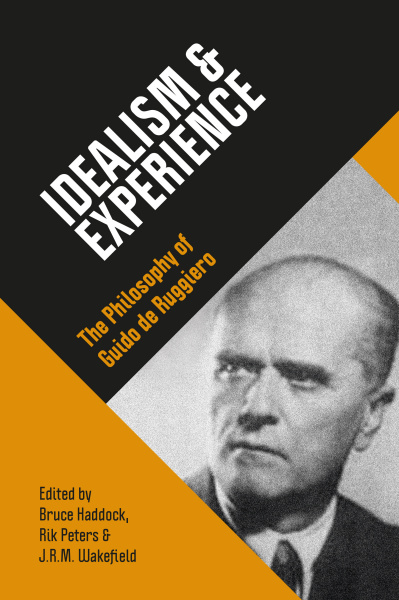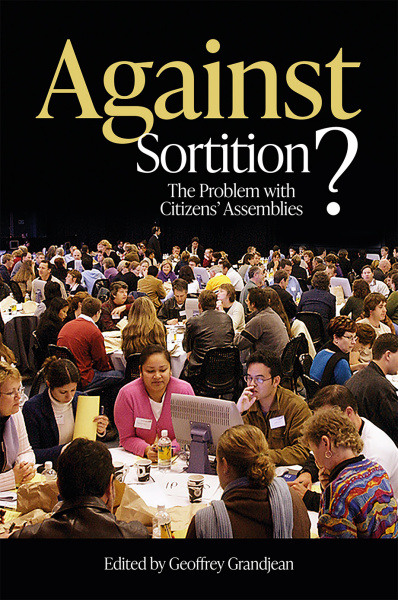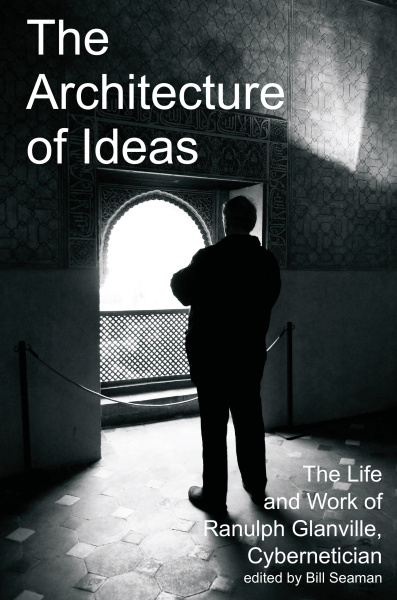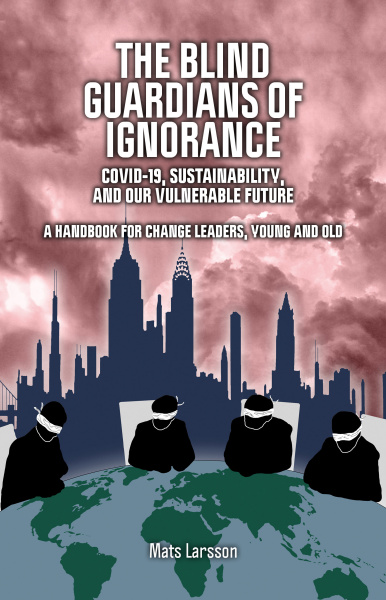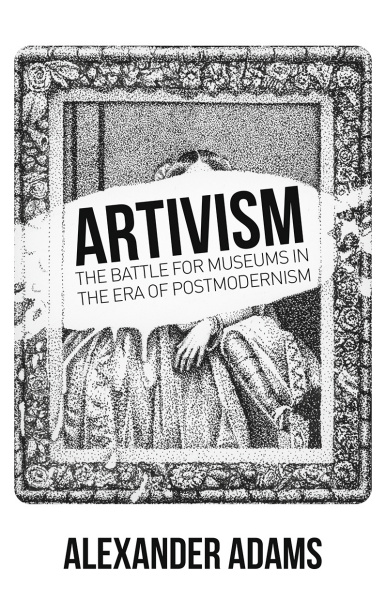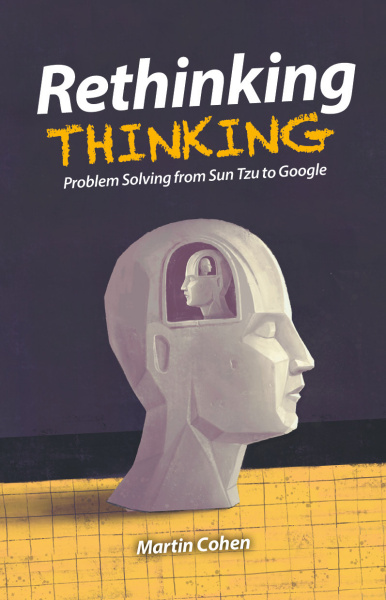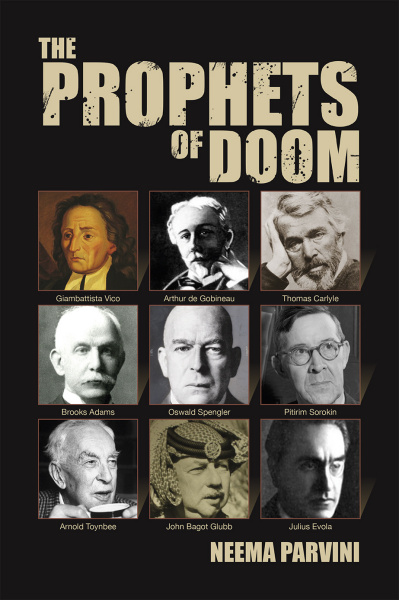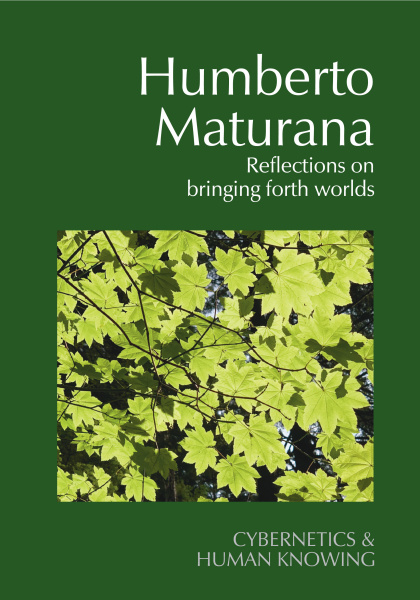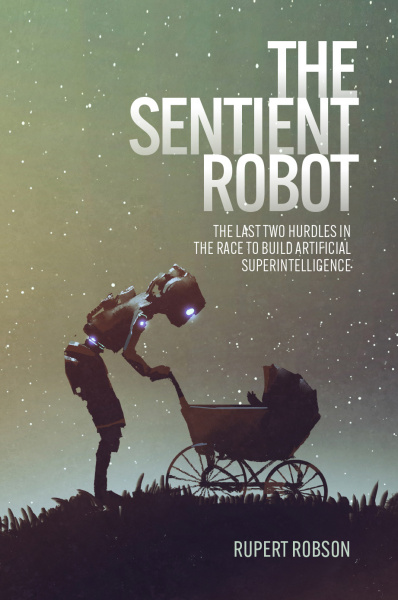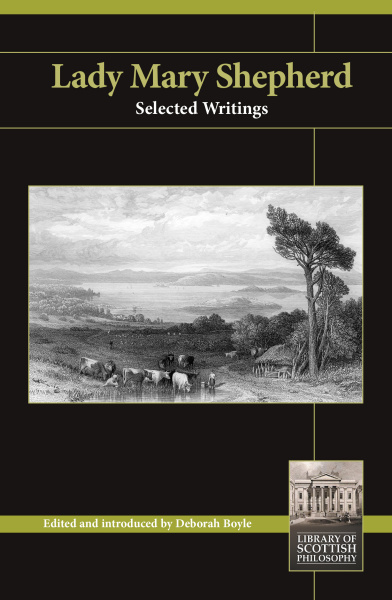Imprint Academic
-

The Landscape of Introspection
What Forms Could Introspective Systems Take?
The Landscape of Introspection, first published as a special issue of the Journal of Consciousness Studies, offers an informed, contemporary, and challenging view of what introspection is – and could be.
-

Unknowable Minds
Philosophical Insights on AI and Autonomous Weapons
Unknowable Minds delves into the unsettling reality of entrusting our safety to an intelligence that lacks human essence. The book explores how AI differs from any technology we've ever developed, its inherent complexities, and the profound risks it poses to our future.
-

Ancient Evenings
Nine Pyrrhonian Dialogues
Ancient Evenings is a study of consciousness presented as a series of fictional philosophical dialogues - on good and evil, truth and falsehood, life and death - set at the height of the Roman Empire.
-

Consciousness and Its Place in Nature
Why Physicalism Entails Panpsychism (2nd Ed.)
Galen Strawson has been on the front line of the battlefield on the topic of panpsychism since the 1990s. This new edition of this seminal book (originally published in 2006) contains several new postscripts on the topic of panpsychism, and Strawson's 'realistic monism' in particular.
-

Mary Catherine Bateson
Compositions in Living Cybernetics
This collection of essays from authors representing a range of disciplines from anthropology to design to creativity and spirituality, as well as transdisciplinary perspectives that are at the heart of cybernetics, honours Mary Catherine Bateson's life and work.
-

Humberto Maturana
Reflections on Bringing Forth Worlds
This volume is grounded in a deep appreciation of the rich and cohesive constellation of ideas developed by Humberto Maturana which, taken as a whole, can be understood as a biocultural matrix of human understanding.
-

Is Consciousness Everywhere?
Essays on Panpsychism
This volume, originally a special issue of the Journal of Consciousness Studies, uses the recent writings of Philip Goff as a jumping-off point for discussions of panpsychism — the idea that consciousness is a fundamental and pervasive aspect of our universe that cannot be understood in other, more basic, terms.
-

The Sentient Robot
The Last Two Hurdles in the Race to Build Artificial Superintelligence
Rupert Robson argues that we are now just two conceptual hurdles away from developing artificial superintelligence. The first of the two hurdles is to embed consciousness in AI, thereby giving us the sentient robot. The second is about the developmental step needed in AI design so as to achieve human-level flexibility in thought.
-

Shadow, Self, Spirit
Essays in Transpersonal Psychology
Transpersonal Psychology concerns the study of those states and processes in which people experience a deeper sense of who they are, or a greater sense of connectedness with others, with nature, or the spiritual dimension. This book brings together the author's writings on the topic over recent years in a new and enlarged edition.
-

Selfhood, Autism and Thought Insertion
This book, a reprint of a special issue of the Journal of Consciousness Studies, highlights some excellent examples of the complex nature of first-person thoughts as they figure in linguistics, autism, thought insertion in schizophrenia, and the phenomenon of mental autonomy.
-

Radical Transformation
The Unexpected Interplay of Consciousness and Reality
In Radical Transformation, Imants Barušs leads the reader out of the receding materialist paradigm into an emerging post-materialist landscape in which new questions present themselves. The book contains discussions of meaning, radical transformation, and subtle activism, revealing the unexpected interplay of consciousness and reality.
-

The Psychology of the Bible
Explaining Divine Voices and Visions
The Psychology of the Bible explores how the Old Testament provides perspective into the tumultuous transition from an earlier mentality to a new paradigm of interiorized psychology and introspective religiosity that came to characterize the first millennium BCE.
-

Laws of Form: Spencer-Brown at Esalen, 1973
This Special Issue of Cybernetics and Human Knowing contains rare material related to G. Spencer-Brown's book Laws of Form and its contents. In 1973 there was a conference at Big Sur at which Spencer-Brown discussed his calculus with a group of scientists. In this issue we print Walter Barney’s transcripts of the conference.
-

Seeing
Beyond Dreaming to Religious Experiences of Light
After years of lucid dreaming, the author spontaneously experiences a series of religious encounters with intense light which bring an awareness of the presence of God. He describes a number of these encounters in detail. The greater part of the book then presents an analysis of these experiences.
-

A Hospitable Universe
Addressing Ethical and Spiritual Concerns in Light of Recent Scientific Discoveries
This book argues that new developments in the sciences, in particular twentieth-century physics and twenty-first-century biology, suggest revising several pessimistic outlooks for the development of a scientific understanding of the relationship of humans with the universe.
-

The 'Other' Psychology of Julian Jaynes
Ancient Languages, Sacred Visions, and Forgotten Mentalities
Brian J. McVeigh, a student of Jaynes, points out the blind spots of mainstream, establishment psychology by providing empirical support for Jaynes's ideas on sociohistorical shifts in cognition. He argues that from around 3500 to 1000 BCE the archaeological and historical record reveals features of hallucinatory super-religiosity.
-

The Jaynes Legacy
Shining New Light Through the Cracks of the Bicameral Mind
Following on from Jaynes, this book suggests that the evolution of the relationship between consciousnesses, mass, energy, and spacetime radically changed nearly 6,000 years ago during the epigenetic, evolutionary degeneration of a little-known, threadlike structure originating from the center of the central nervous system called Reissner's fiber.
-

Illusionism
as a theory of consciousness
Illusionism is the view that phenomenal consciousness is an illusion. This book is a reprint of a special issue of the Journal of Consciousness Studies devoted to this topic. It takes the form of a target paper by the editor, followed by commentaries from various thinkers representing various academic disciplines.
-

Arthur Balfour's Ghosts
An Edwardian Elite and the Riddle of the Cross-Correspondence Automatic Writings
This book tells the incredible story of the cross-correspondence automatic writings, described by one leading scholar of the field, Alan Gauld, 'as undoubtedly the most extensive, the most complex and the most puzzling of all ostensible attempts by deceased persons to manifest purpose...'
-

The Many Faces of Coincidence
The Many Faces of Coincidence proposes an inclusive categorisation for coincidences of all shapes and sizes. At the same time, some of the implications arising from the various explanations are explored, including the possibility of an underlying unity of mind and matter constituting the ground of being.
-

Metapsychology of the Creative Process
Continuous Novelty as the Ground of Creative Advance
This book discusses a process (microgenetic) theory of the mental state of creativity that differs markedly from mainstream (cognitive) psychology, but with the potential to clarify many features of thought and imagery, normal and exceptional. Creativity is not an isolated problem but touches many central issues in philosophical psychology.
-

Before Consciousness
In Search of the Fundamentals of Mind
This book aims to integrate the non-conscious as a constitutive dimension of the mind and also to outline how it is indispensable in virtually everything we do.
-

The Singularity
Could artificial intelligence really out-think us (and would we want it to)?
Volume combining two special issues of the Journal of Consciousness Studies on the philosophical aspects of a possible artificial intelligence singularity.
-

Insides and Outsides
Interdisciplinary Perspectives on Animate Nature
Insides and Outsides brings together diverse aspects of animate nature, showing that scientific understandings of animate nature are — or can be — complementary to philosophical understandings.
-

In Their Right Minds
The Lives and Shared Practices of Poetic Geniuses
Based on nearly twenty years of scientific and literary research, this book enters the atypical minds of poetic geniuses — Blake, Keats, Hugo, Rilke, Yeats, Merrill, Plath and Hughes — by way of the visible signs in their lives, beliefs, and shared practices.
-

Beyond the Subjectivity Trap
Beyond the Subjectivity Trap challenges the paradigm of the hard problem of consciousness by contesting the relevance and primacy of human thought.
-

Microgenetic Theory and Process Thought
The chapters in this volume attempt to establish some foundational principles of a theory of the mind/brain grounded in evolutionary and process theory.
-

Mechanisms in World and Mind
Perspective Dualism, Systems Theory, Neuroscience, Reductive Physicalism
This book is about philosophical aspects of neuroscience, centred on perspective dualism.
-

Depression, Emotion and the Self
Philosophical and Interdisciplinary Perspectives
This volume addresses the question of what it is like to be depressed. Despite the vast amount of research that has been conducted into the causes and treatment of depression, the experience of depression remains poorly understood.
-

Knowing, Doing, and Being
New Foundations for Consciousness Studies
Between 1965 and 2002 several key lines of research emerged which, taken together, can potentially revolutionise our understanding of the place of consciousness in the universe. In this book the author explains the close connections between these new ingredients.
-

Meaning in Communication, Cognition and Reality
Outline of a Theory from Semiotics, Philosophy and Sociology
This book presents a general and formal theory of meaning, signs, and language. The theory is presented in a clear and consistent way offering novel and provocative insights into the fundamental structures and processes of communication, cognition, and reality.
-

Looking In and Speaking Out
Introspection, Consciousness, Communication
The authors argue it is essential to examine the linguistic and communicative practices that are used in the production of introspective data, and thereby make an important contribution to debates about how we may study experience that are relevant to a wide range of disciplines.
-

Demystifying Shamans and their World
A Multidisciplinary Study
This multi-disciplinary study draws on the fields of psychology, philosophy and anthropology with the aim of demystifying shamanism. The authors analyse conflicting perspectives regarding shamanism, the epistemology of shamanic states of consciousness, and the nature of the mental imagery encountered during these states.
-

The Moon and Madness
Lunacy, the legendary notion of minds unhinged by the moon, continues to captivate the popular imagination. The book is divided into two parts. It begins with a historical account of the lunacy concept, followed by an investigation of hypothetical mechanisms for a lunar effect.
-

Pluralism and the Mind
This book argues that new concepts of emergent mental properties are needed because of the failure of mainstream approaches satisfactorily to address issues like subjective volition, autonomy and creativity. Personal consciousness is active and classifiable as a subset of the wider problem of biological causation.
-

Avatar-Philosophy (and -Religion) Or FAITHEISM
Are you prepared, either as an atheist or a religious believer, to have your ideas of God, the self, other people, the body, the soul, spirituality, and faith challenged in an unexpected and original way? Here is a book that moves out from under and away from the received notions of those ponderous topics, whether or not you believe in the divine.
-

The Implications of Embodiment
Cognition and Communication
This edited volume is scientifically based, but readable for a larger audience, covering the concept of "embodied cognition" and its implications from a transdisciplinary angle.
-

Situated Aesthetics
Art Beyond the Skin
This book focuses on externalist approaches to art. It is the first fruit of a workshop held in Milan in September 2009, where leading scholars in the emerging field of psychology of art compared their different approaches using a neutral language and discussing freely their goals.
-

Digital Social Mind
This book argues that relational cognition, a form of social cognition, exhibits digital infinity as does language.
-

Ten Years' Viewing from Within: Further Debate
This special issue of the Journal of Consciousness Studies is the sequel to Ten Years of Viewing from Within, commemorating the tenth anniversary of the publication of The View from Within, where Francisco Varela in collaboration with Jonathan Shear designed the foundations of a research program on lived experience.
-

JCS Symposium on Describing Inner Experience
A Debate on Descriptive Experience Sampling
A special issue of the Journal of Consciousness Studies debating the merits of Russell Hurlburt's technique of Descriptive Experience Sampling (DES) as a means of accessing inner experience.
-

Who Was Mrs Willett?
Landscapes and Dynamics of Mind
Here is an account of mentality and human experience, written for a multi-disciplinary readership. The focus is on how mind, consciousness and selves inter-relate, extending into exploration of ideas about the nature of awareness and a search for relevant evidence.
-

The Victorian's Guide to Consciousness
Essays Marking the Centenary of William James
A special issue of the Journal of Consciousness Studies to mark the centenary of the death of the pioneer psychologist William James.
-

Immortal Longings
F.W.H. Myers and the Victorian Search for Life After Death
Immortal Longings is the first full-length biography of Frederic W.H. Myers, leading figure in the Society for Psychical Research and friend and associate of Browning, Gladstone, Ruskin, Tennyson, Swinburne, Henry James, Prince Leopold and other influential Victorians.
-

Evolving Ethics
The New Science of Good and Evil
This book describes the application of Artificial Life simulation to evolutionary scenarios of wide ethical interest, including the evolution of altruism, rape and abortion, providing a new meaning to "experimental philosophy".
-

Getting Darwin Wrong
Why Evolutionary Psychology Won't Work
This book, which is written in a reader friendly but rigorous style, is a timely assault on one of the most fashionable philosophies of mind currently 'out there'.
-

Spiritual Crisis
Varieties and Perspectives of a Transpersonal Phenomenon
In this book people speak about inner experiences in which they perceived themselves and the world so differently that they thought they were going mad. Experiences of existential voids, heights and depths, freezing wastes and silences, of pure energy, love and fear, oneness and chaos.
-

Sensibility and Sense
The Aesthetic Transformation of the Human World
Sensibility and Sense offers a philosophically comprehensive account of humans' social and cultural embeddedness encountered, recognized, and fulfilled as an aesthetic mode of experience.
-

Mindworlds
A Decade of Consciousness Studies
Understanding consciousness is one of the central scientific challenges of our time. This book presents Andy Ross's recent work and discusses a range of perspectives on the core issues.
-

Ten Years of Viewing from Within
The Legacy of Francisco Varela
Ten years on from The View From Within, Claire Petitmengin has organized a collection of essays that examine and refine the research program on first-person methods defined in The View from Within, with contributions based on empirical research.
-

Narrative and Folk Psychology
This volume, which is a special issue of the Journal of Consciousness Studies, brings together new work by scholars from a range of disciplines whose aim is to clarify, develop and challenge the claim that folk psychology may be importantly - perhaps even constitutively - related to narrative practices.
-

The corporeal turn
An interdisciplinary reader
The purpose of The Corporeal Turn is to document in a single text the impressive array of investigations possible with respect to the body and bodily life, and to show that, whatever the specific topic being examined, it is a matter of fathoming and elucidating complex and subtle structures of animate meaning.
-

Emergence and Downward Determination
This special issue of the journal Cybernetics & Human Knowing brings together contributions to the debate on emergence and related topics from a variety of perspectives, especially the sciences of complexity and cybernetics.
-

Subjectivity and Being Somebody
Human Identity and Neuroethics
This book uses a neo-Aristotelian framework to examine human subjectivity as an embodied being. It examines the varieties of reductionism that affect philosophical writing about human origins and identity.
-

The Origin of Consciousness in the Social World
Western individualism has delayed scientific recognition of the essentially social nature of consciousness – or at least of the human mind and brain. The contributors to this volume, introduce some anthropological themes into consciousness studies.
-

Origin of Humanness in the Biology of Love
The central concern of this book is us human beings. The authors' basic question is: 'How is it that we can live in mutual care, have ethical concerns, and at the same time deny all that through the rational justification of aggression?’
-

Healing, Hype or Harm?
A Critical Analysis of Complementary or Alternative Medicine
The scientists, academics and practitioners writing this book are not 'against' complementary or alternative medicine (CAM), but they are very much ‘for’ evidence-based medicine and single standards. They aim to counter-balance the many uncritical books on CAM and to stimulate intelligent, well-informed public debate.
-

Brainstorming
Views and Interviews on the Mind
Shaun Gallagher is a philosopher of mind who has made it his business to study and meet with leading neuroscientists, including Michael Gazzaniga, Marc Jeannerod and Chris Frith. The result is this unique introduction to the study of the mind, with topics ranging over consciousness, emotion, language, movement, free will and moral responsibility.
-

Representational and the Presentational
An Essay on Cognition and the Study of Mind
In this wide-ranging book the author presents his critique of the contemporary portrayal of cognition, an analysis of the conceptual foundations of cognitive science and a proposal for a new concept of the mind.
-

Mind, the Body and the World
Psychology After Cognitivism?
The roots of cognitivism lie deep in the history of Western thought, and to develop a genuinely post-cognitivist psychology, this investigation goes back to presuppositions descended from Platonic/Cartesian assumptions and beliefs about the nature of thought.
-

Interplay Between Consciousness and Concepts
Questions on the nature of concepts in philosophy, psychology, and cognitive science, such as 'What are concepts?' and ‘What is it to possess a concept?’ are notoriously difficult to answer. These questions are tackled here by Simon Baron-Cohen, Peter Carruthers, and a distinguished cast of scientists and philosophers.
-

Why Spirituality is Difficult for Westerners
Dr Hay is Honorary Senior Research Fellow at the University of Aberdeen. A zoologist by profession, his research has been guided by the hypothesis that religious or spiritual awareness is biologically natural to the human species and has been selected for in evolution.
-

Making God
A New Materialist Theory of the Person
Developments in psychology mean that our view of persons is unlike the great teachers of the Axial Age -- the Buddha, Confucius, Zoroaster, etc. -- and therefore the God they made can no longer serve as ours. We have to make our own. So argues Ann Long in this fascinating exploration of personhood, religion and moral value.
-

Dimensions of Personhood
This collection of original articles considers the perennial question 'What are persons?' It aims first of all to clarify the nature of the question and its relation to associated questions such as the nature of the human animal.
-

What Does it All Mean?
A Humanistic Account of Human Experience
Adams sets out a new reasoned argument, based on his experience as a cognitive psychologist and as a human being, to show why Socrates was right: the purpose of life is to recognize ourselves — in each other and in all things.
-

World in My Mind, My Mind in the World
Key Mechanisms of Consciousness in People, Animals and Machines
Not consciousness, but knowledge of consciousness: that is what this book communicates in a fascinating way.
-

Concepts of Consciousness
Integrating an Emergent Science
For the conference and the special issue of the Journal of Consciousness Studies that lie behind this book, pairs of researchers were asked to tackle from different standpoints concepts of consciousness such as realism, representation, intentionality, information, control, memory and the self.
-

Science as a Spiritual Practice
Science as a Spiritual Practice is in three parts. In the first part the author argues that there are problems with materialism and that self-transformation could lead scientists to more comprehensive ways of understanding reality. Part two discusses inner knowledge and altered states. Part 3 analyses the philosophy of Franklin Wolff.
-

Paranormal and the Politics of Truth
A Sociological Account
This book is based on the author's ten-year research into the politics of belief surrounding paranormal ideas.
-

Artificial Consciousness
The book is interdisciplinary and focuses on the topic of artificial consciousness: from neuroscience to artificial intelligence, from bioengineering to robotics.
-

Between Chance and Choice
Interdisciplinary Perspectives on Determinism
This volume collects essays by accomplished scientists and philosophers, addressing numerous facets of the concept of determinism. The contributions cover viewpoints from mathematics, physics, cognitive science and social science as well as various branches of philosophy.
-

Right Road to Radical Freedom
This work focuses on the topic of freedom. The author starts with the old issue of free will — do we as individual human beings choose our conduct, at least partly independently, freely?
-

Radical Externalism
Honderich's Theory of Consciousness Discussed
What is it for you to be conscious? To be conscious now, for instance, of the room you are in? Theories on offer divide into just two categories, labelled by Ted Honderich as devout physicalism and spiritualism.
-

How Many People are There in My Head? And in Hers?
An Exploration of Single Cell Consciousness
This book makes the proposal that the only possible solution to the 'mind-brain' problem is that each nerve cell is conscious separately and that we have no other 'global' consciousness.
-

Psychedelic Horizons
This is a different kind of book about psychedelics. Rather than describing psychedelic experiences, it presents four future-oriented ideas 'coming over the psychedelic horizon', which illustrate the potential benefits of psychedelics for humanity.
-

Emotion Experience
Emotion experience has failed to date to gain a central place in the study of consciousness. This special issue of the Journal of Consciousness Studies presents the most recent views on the matter, with discussions of several aspects of emotion experience.
-

Moral Mind
A Study of What it is to be Human
The reality and validity of the moral sense — which ordinary people take for granted — took a battering in the last century. Haslam shows how important the moral sense is to the human personality and exposes the weakness in much current thinking that suggests otherwise.
-

Shadow, Self, Spirit
Essays in Transpersonal Psychology
Transpersonal Psychology concerns the study of those states and processes in which people experience a deeper sense of who they are, or a greater sense of connectedness with others, with nature, or the spiritual dimension. This book brings together the author's writings on the topic over recent years.
-

Sheldrake and His Critics
The Sense of Being Glared at
Rupert Sheldrake outraged the scientific establishment in the early 1980s with his hypothesis of morphic resonance. In this book Sheldrake summarizes his case for the 'non-visual detection of staring'. His claims are scrutinised by fourteen critics, to whose commentaries he then responds.
-

Gregory Bateson
Essays for an Ecology of Ideas
Gregory Bateson's work continues to touch others in fields as diverse as communication, ecology, anthropology, philosophy, family therapy, education, and mental/spiritual health. The authors in this special issue of Cybernetics & Human Knowing celebrate the Bateson Centennial.
-

Ways of Knowing
Science and Mysticism Today
The world faces a crisis of meaning. The old stories — whether the exclusive claims of rival religions or the grand schemes of perennial philosophy — seem bankrupt to many. The editorial stance of this book is that mysticism and science offer a way forward here.
-

Plain Person's Free Will
In this special issue of the Journal of Consciousness Studies David Hodgson defends a simple, robust account of the plain person's position on free will, and intends it to support equally robust views of personal responsibility for conduct.
-

Paradoxical Primate
Human beings have an evolved but highly adaptable nature. This book sets out to establish a new framework for understanding human nature, from an evolutionary perspective but drawing on existing social sciences.
-

Hidden Resources
Classical Perspectives on Subjectivity
To what extent can the current discussion of consciousness in mainstream cognitive science and analytical philosophy of mind profit from insights drawn from the investigations of subjectivity found in the Kantian and post-Kantian tradition (Kant, Schleiermacher, Kierkegaard) as well as in the phenomenological and hermeneutical tradition?
-

Why the Mind is Not a Computer
A Pocket Lexicon of Neuromythology
The equation "Mind = Machine" is false. This pocket lexicon of "neuromythology" shows why.
-

Trusting the Subject?
Volume Two
This work is designed to encourage cognitive scientists to take more account of the subject's unique perspective.
-

Science, Consciousness and Ultimate Reality
The Science, Consciousness and Ultimate Reality project was set up with the support of the John Templeton Foundation in order to examine critical issues at the interface between science, religion and the field of 'consciousness studies'.
-

Our Last Great Illusion
A Radical Psychoanalytical Critique of Therapy Culture
'Therapy may be mad,' declares Rob Weatherill in this outspoken volume. This book aims to refute the fashion for a return to a pre-Cartesian ideal of harmony and integration.
-

Art and the Brain III
Third of a three-volume series of the "Journal of Consciousness Studies", which asks if it is possible to take a natural science approach to art and uncover general laws of aesthetic experience, or is that taking reductionism too far?
-

Francisco J. Varela 1946-2001
A volume dedicated to the life and work of Francisco Varela, this is an issue of the journal "Cybernetics and Human Knowing".
-

Heinz Von Foerster 1911-2002
Dedicated to the life and work of Heinz Von Foerster, this is a double issue of the journal "Cybernetics and Human Knowing".
-

Trusting the Subject?
Volume One
This work is designed to encourage cognitive scientists to take more account of the subject's unique perspective.
-

Man Who Tasted Shapes
The ten people in one million who are synaesthetes are born into a world where one sensation (e.g. sound) conjures up one or more others (e.g. taste or colour). Extensive experiments with more than forty synaesthetes led Richard Cytowic to an explanation of synaesthesia that emphasized the primacy of emotion over reason.
-

Psi Wars
Getting to Grips with the Paranormal
This collection of essays shows that a simple division into 'sceptics' and ‘believers’ for the paranormal cannot be made. The real struggle, for all researchers, is not with each other, but to get a secure hold on the subject itself.
-

Machine Consciousness
Can a machine really be conscious? Can it have feelings? Well, even the humble thermostat knows when it gets too hot — and it can do something about it too. But can a machine think thoughts? Does it have a personality? How would you know?
-

Physicalism and Mental Causation
This book presents a range of essays on the conceptual foundations of physicalism, mental causation and human agency.
-

Cognitive Approach to Conscious Machines
Could a machine have an immaterial mind? The author argues that true conscious machines can be built, but rejects artificial intelligence and classical neural networks in favour of the emulation of the cognitive processes of the brain—the flow of inner speech, inner imagery and emotions.
-

Structure of Thinking
A Process-oriented Account of Mind
This book presents an alternative, naturalistic view of human thinking, arguing that computers are merely sophisticated machines.
-

How Could Conscious Experiences Affect Brains?
In daily life we take it for granted that our minds have conscious control of our actions, at least for most of the time. But many scientists and philosophers deny that this is really the case, because there is no generally accepted theory of how the mind interacts with the body. Max Velmans presents a non-reductive solution to the problem.
-

Varieties of Religious Experience
Centenary Essays
William James published his classic work on the psychology of religion, "The Varieties of Religious Experience", in 1902. To mark the centenary, leading contemporary scholars reflect on changes in our understanding of the questions James addressed.
-

Is the Visual World a Grand Illusion?
There is a traditional scepticism about whether the world "out there" really is as we perceive it. A new breed of hyper-sceptics now challenges whether we even have the perceptual experience we think we have. The writings collected in this volume explore the implications of this scepticism.
-

Emergence of Consciousness
How does the conscious mind relate to the physical body? In The Emergence of Consciousness philosopher Robert Van Gulick gives a clear and masterly overview and comparison of the current 'emergent' and ‘reductive’ approaches. Other contributors discuss more detailed aspects of the subject.
-

Between Ourselves
Second Person Issues in the Study of Consciousness
The first volume in this series (The View from Within) was a study of first-person approaches to the study of consciousness. Second-person 'I–You' relations are central to human life yet have been neglected in consciousness research. This book puts that right.
-

Cognitive Models and Spiritual Maps
Interdisciplinary Explorations of Religious Experience
This book throws down a challenge to religious studies, offering a multidisciplinary approach - including developmental psychology, neuropsychology, philosophy of mind, and anthropology.
-

Art and the Brain, II
Investigations into the Science of Art
Second of a three-volume series of the "Journal of Consciousness Studies", which asks if it is possible to take a natural science approach to art and uncover general laws of aesthetic experience, or is that taking reductionism too far?
-

Volitional Brain
Towards a Neuroscience of Freewill
The puzzling status of volition is explored in this issue by a distinguished body of scientists and philosophers.
-

Models of the Self
A comprehensive reader on the problem of the self as seen from the perspectives of philosophy, development psychology, robotics, cognitive neuroscience, psychopathology, semiotics, phenomenology and contemplative studies, all focused on a keynote paper.
-

How to Solve the Mind-body Problem
The mind is the brain. Each mental state -- each hope, fear, thought -- can be identified with a particular physical state of the brain, without remainder. So argues Nicholas Humphrey in this highly readable yet scholarly essay.
-

Evolutionary Origins of Morality
Cross Disciplinary Perspectives
This volume includes four principal papers and a total of 43 peer commentaries on the evolutionary origins of morality.
-

Reclaiming Cognition
The Primacy of Action, Intention and Emotion
Traditional cognitive science is Cartesian in the sense that it takes as fundamental the distinction between the mental and the physical, the mind and the world. The authors depart radically from this model.
-

Art and the Brain
First of a three-volume series of the "Journal of Consciousness Studies", which asks if it is possible to take a natural science approach to art and uncover general laws of aesthetic experience, or is that taking reductionism too far?
-

View from Within
First-person Approaches to the Study of Consciousness
Drawing on a wide range of approaches — from phenomenology to meditation — THE VIEW FROM WITHIN examines the possibility of a disciplined approach to the study of subjective states. The focus is on the practical issues involved.
